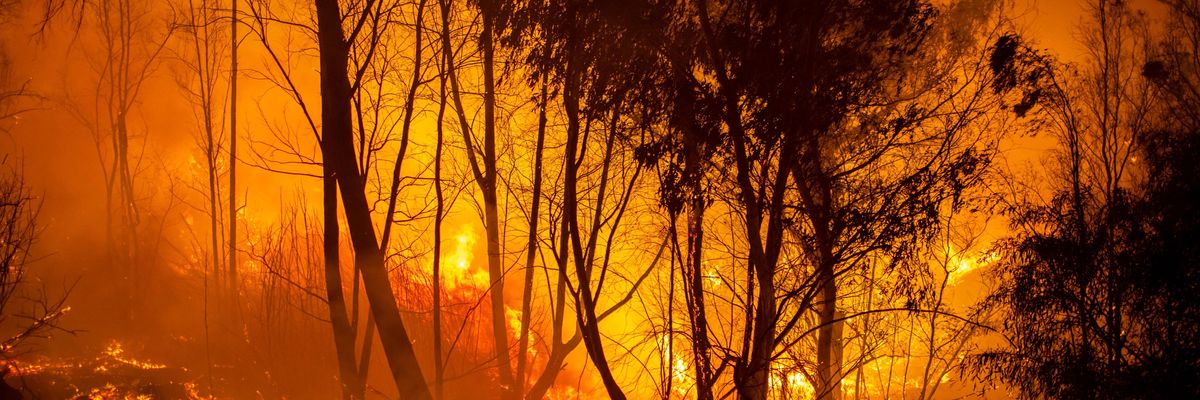
Trees burn in a forest on the slopes of the Troodos mountain chain, as a giant fire rages on the Mediterranean island of Cyprus, during the night of July 3, 2021. - A huge forest blaze in Cyprus has killed four people, destroyed homes and forced evacuations of villages as Greece and other countries deployed fire-fighting planes to the Mediterranean island. The fire began in the afternoon of July 3 and swept through districts in the southern foothills of the Troodos mountains as the country grapples with a blistering heatwave. (Photo: GEORGIOS LEFKOU PAPAPETROU/AFP via Getty Images)